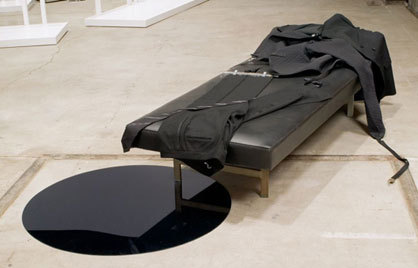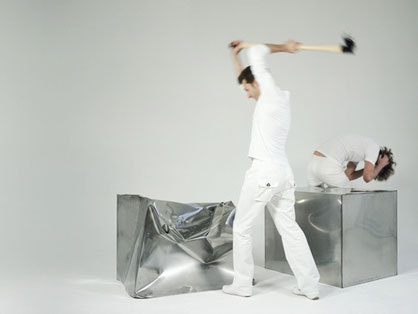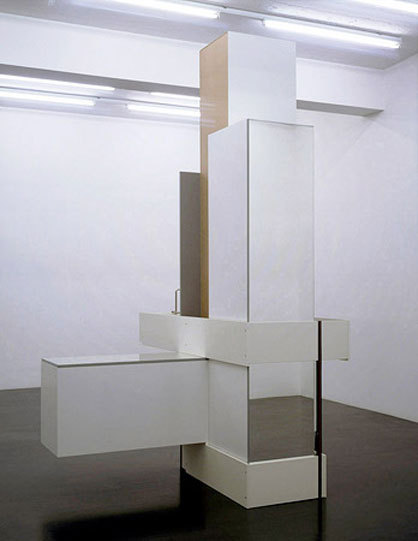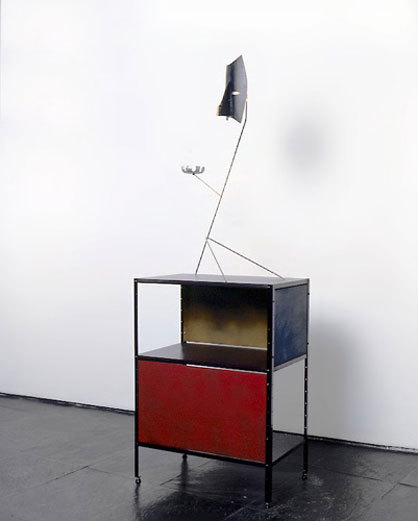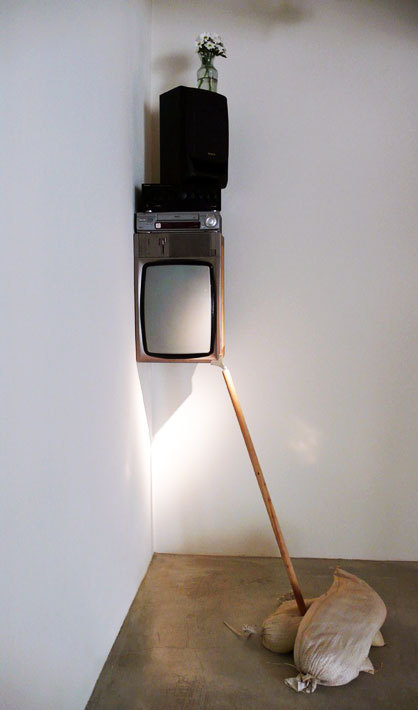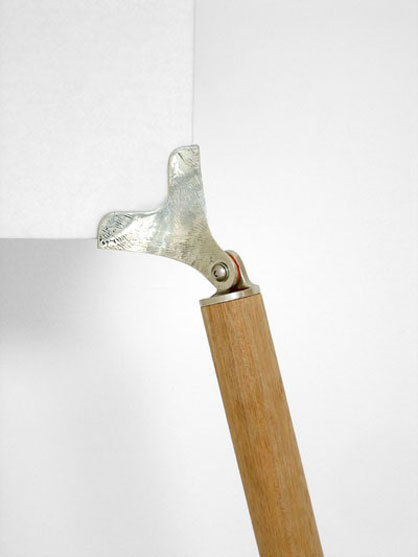Prototyp
Scritto da NoéMie Schwaller
Zürich, Svizzera
02.07.09
A research project at the Institute for Theory at Zurich's University of the Arts looks at current furniture works involving design and art.
A research project at the Institute for Theory at Zurich's University of the Arts looks at current furniture works involving design and art.
Design and art
Ever since the modern concept of the autonomy of art created the necessity of dividing the two areas more than 100 years ago, designers and artists have again and again adopted each other's design and production concepts. Today this practice can increasingly be observed in the structure of exhibitions, methods of production and sales channels. However, with the existing differences in the ways these two disciplines see themselves and the debates taking place in the fields of art and design it does not appear useful simply to call for these borders to be broken down. On the contrary, in this project the all-inclusive research approach is applied to the examination of a modified concept of function within design, art theory and sociology, as well as their current relationship with the things that are created.
Furniture
Objects of furniture fulfill daily functions between our bodies and the spaces we live in, as organisers, intermediaries and even as physical supports. In the process close relationships can inevitably be observed between their aesthetic appearance and its significance for function, their status as objects and the surroundings we live in. In the late 1990s a number of artists and collectives such as Tobias Rehberger, Jorge Pardo and N55 produced, within the context of art, furniture which actually functioned and could be used, but current artistic positions such as those of Florian Slotawa, Tom Burr or Xabier Salaberria seem to be interested less in actual functionality and more in the visual options of possible use. Where the British writer Alex Coles still describes lounge furnishings such as those of Jorge Pardo as a symbiotic "design art", today the dysfunctional furniture fragments created by Florian Slotawa, for example, could better be described as "art over design".
Current developments
Functional indeterminacy and demands for design as a critical practice are increasingly influencing the debate about contemporary product design and graphic design. For example, with their ambiguous shapes which often leave the actual purpose undefined some designers aim at creating both a modified, multi-optional form of customer behaviour and an accompanying change in the concept of function. After the end of the all-encompassing "corporate look" which characterised the 1990s, it now seems that decisions on design have been handed over to the consumer, who is expected to play an active role. Here the operation of taking individual ownership becomes the actual design process, as is shown in the redefinition of ready-made articles from mass production into special design objects by the work of the designer Frederic Dedelley. The 'Prototyp' research project will examine these reciprocal influences between furniture in the contemporary design and art context - between undefined use and "critical design" on the one hand and contemporary "ad hoc furniture" on the other. The project has been made possible by the DORE programme of Switzerland's national fund and will run from December 2008 to November 2009.
Activities / events
In addition to the work of the research team involving interviews and scientific analysis of images, two public events are also part of the research programme: a practical workshop in July 2009 and a symposium in November 2009. The results of the first phase of the project will be used to develop concepts for publication, an exhibition and a prototype cooperation with business partners from manufacturing. A follow-up project is planned for 2010.
Practical Workshop in Boisbuchet, France
19 – 26 July 2009
Sigga Heimis (SE) / Florian Slotawa (D)
This workshop will analyse the differences and similarities in the way artists and designers work. On the basis of specifying materials and spaces, varying situations will be created by the use of furniture. The focus will be on dealing with limitations on the one hand, and an open process on the other. For example the workshop will look at the objectives which are set, the creative strategies which are developed, how existing material is interpreted, how co-operatively or individually people work, and what the relationship is between the creator and the creation. The workshop is part of the overall 'Prototyp' research project and will be accompanied by an art theorist and a design theorist. The requirement for participation is qualifications or professional work in art or design.
Sigga Heimis (SE)
Born in Reykjavik, Iceland in 1970, she studied industrial design at the Istituto Europeo di Design in Milan, 1994, where she was awarded the Compasso D’Oro for her degree project. In 1995 she established her own design company H&H in Iceland. Sigga Heimis has completed design projects for a number of companies worldwide, ranging from furniture via interiors down to medical applications. After returning to Milan in the year 2000 she completed a Masters degree at the Domus Academy and continued her work for H&H. Since 2001 she has worked for Ikea in Sweden, where she now lives. For the company she has designed products of all kinds, ranging from children's furniture to bread baskets. As a lecturer Sigga Heimis has taught in the design schools of the Eindhoven Design Academy, Royal College of Art in London, Domus in Milan, the University of Art and Design in Helsinki, Parsons in New York, the University of Shanghai and at Marhi in Moscow. Her work has been on show in a number of design museums and exhibitions.
Florian Slotawa (DE)
In a conscious attempt to avoid adding further things to the crowded world of everyday objects the Berlin artist Florian Slotawa (*1972) has used such objects and spaces in order to create temporary sculptural assemblies and installations. Slotawa's work is an invitation to participate in the debate about the contexts of institutional exhibitions, the borders between private and public spaces, and the way artistic values are perceived. In recent years Slotawa's work has been on show at a number of individual and group exhibitions, including the P.S.1, MOMA in New York, the Sies & Höke gallery in Düsseldorf and Modern Art in London. In addition Florian Slotawa teaches as a professor at the Berlin University of the Arts.
